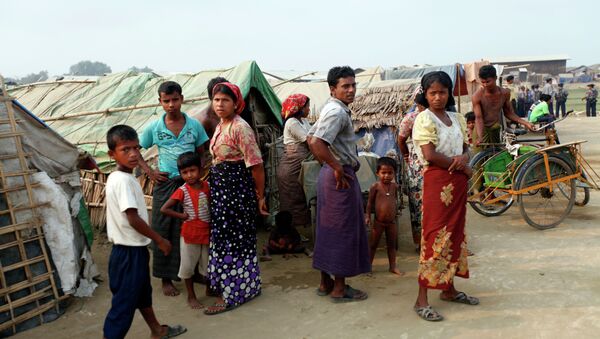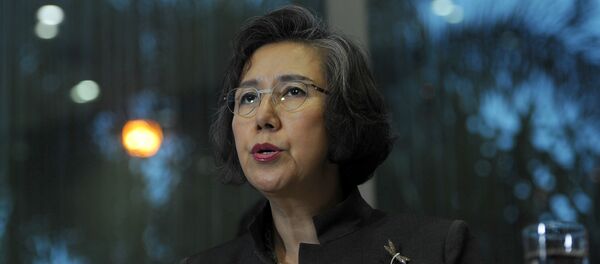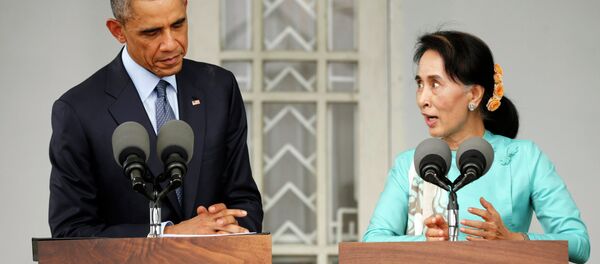"Valuable gains made in the area of freedom of expression and assembly [in Myanmar] risk being lost. Indeed, there are signs that since my last visit, restrictions and harassment on civil society and the media may have worsened," Lee said in a statement published on the Office of the UN High Commissioner for Human Rights' official website.
She added that "if Myanmar is serious about transitioning to democracy, it must be serious about allowing persons affected by its actions to express their frustrations without being punished."
#Myanmar: Backtracking on democratic space gains momentum — UNSR @YangheeLeeSKKU http://t.co/GTGRSTii3I pic.twitter.com/shMnWYRqT9
— UN Human Rights (@UNrightswire) 19 января 2015
During her ten-day visit, Lee met with government officials, the National Human Rights Commission and civil activists in the country's capital Naypyidaw and in the largest city and former capital Yangon.
She was also tasked with examining the human rights situation in the country's western Rakhine State – and found, that "the atmosphere between Buddhists and [Rohingya] Muslims remains hostile" there.
"I saw internally displaced persons in Muslim camps living in abysmal conditions with limited access to food, health care and essential services. They are unable to leave the camps due to the continuing level of tensions. Some have been living inside the camps for two years," the UN expert said.
According to the controversial Rakhine State Action Plan, adopted by the country's government in October, 2014, members of the Rohingya community can obtain citizenship if they identify themselves as illegal migrants from Bangladesh. Those who refuse to comply with this requirement are placed in detention camps.
On December 29, the UN General Assembly adopted a non-binding resolution urging Myanmar to grant citizenship to Rohingya Muslims, many of whom live in the country's Rakhine State.
In March 2015, the Special Rapporteur is expected to submit a report with her observations and recommendations for the Government of Myanmar to the UN Human Rights Council.




